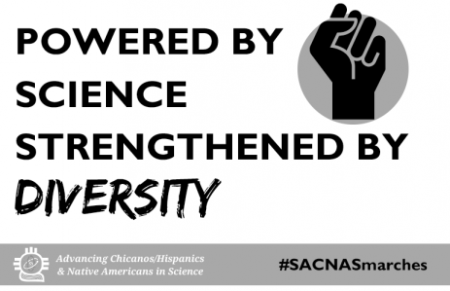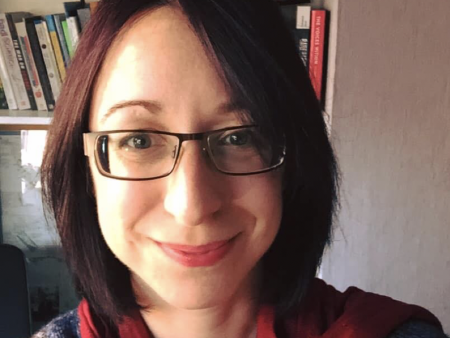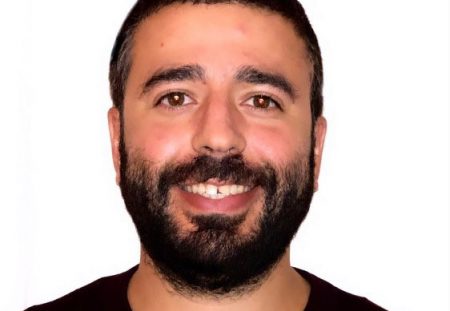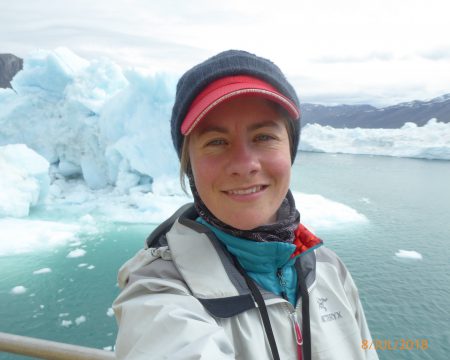
New Schemes! People and Talent
“Knowledge belongs to humanity, and is the torch which illuminates the world.” – Louis Pasteur
People Profiles
Our preparedness and potential for scientific excellence in addressing real world problems and in fundamental curiosity driven interdisciplinary research – revealing new, unimagined frontiers of science and research and further study – is a function of the friendly, well-trained and incredibly knowledgeable people that make up our community. For this reason the EAG’s Diversity, Equity, and Inclusion (DEI) Committee are establishing a new People Profile Series as part of the society’s web pages.
What is the purpose of these special features?
The purpose of the People Profile Series is that, when taken together, the interviews of both scientific teams and individuals provide for humanised and relatable role models representing a broad range of diversity, career paths and types, as well as ultimate career destinations. Collectively, these published interviews shall promote good professional practices and values in teams as well as providing for biographical sketches of the individuals behind community data.
How can you join in and nominate?
Email us! You may volunteer yourself or nominate others from all over the globe to feature in short interviews (answering roughly 8 to 12 of our questions) for EAG’s People Profile Series by contacting us at dei@eag.eu.com. If you prefer, you may email nominations to this committee’s members directly. Please submit names, a link to relevant professional websites (if available), name of employers, and the contact email for nominees. In addition to giving individuals prominence, we strongly encourage suggestions of groups and clusters in various employer settings, as well as transnational cooperative teams that champion sound DEI values.
Teams or any of you that have trained or who work in the broad fields of (bio)geochemistry, Earth system science, astrobiology, igneous petrogenesis, and / or cosmochemistry are invited to participate in the People Profile Series. This scheme is intended to both include and reach well beyond those presently in academia. Whatever your career path, professional destination, or level of seniority we want to hear from and about you!
You might be:
- working in science journalism, writing, scientific illustration, broadcasting, or other communication;
- employed by a professional society separate from EAG, perhaps as a communications and outreach officer, publishing and policy coordinator, or diversity leader;
- responsible for collections curation or scientific research at a museum;
- scientists working for government;
- working in research and / or teaching in academia;
- part of a charitable organisation or a private sector body;
- scientific consultants or environmental monitoring professionals;
- high-level administrators;
- a space mission leader, astronaut (bone fide or aspiring), or a space mission team;
- scientific project managers;
- full-time editors or other roles in the publishing industry;
- developing policy, or working in environmental or space law;
- providing technical support for research or responsible for the development of new instrumentation or instrument capabilities;
- working in a national laboratory or academia, be it in research, or a combination of research, teaching, service and administration;
- teaching full-time or part-time at any level of education and among children or adults;
- working in conservation on land or at seas, or even holding a role as an explorer be it with National Geographic or another body;
- staff at major geotourism destinations, or organisers of a major science festival;
- A refugee or displaced scientist willing to share your experiences;
- undertaking some very different or unexpected work in which you may have even surprised yourself. What is it? Do tell.
In all cases, nominations are not limited to those holding current EAG membership. We very much look forward to receiving your suggestions of those to feature through this new initiative.

Nominations of individuals or groups that include those currently serving the EAG through roles with Council, Committees or other roles of the society will not be eligible during their terms of service. Such nominations will be recorded for consideration at later dates when eligibility may apply. However, these serving members of EAG may submit nominations of those among the wider community.
Talking Talent
In enduring the global COVID-19 pandemic new ways to connect, research, develop professionally, educate, and unite to accelerate change have arisen. In anticipation of re-building and fresh opportunities in a post-pandemic world our community is poised to re-energise via an unprecedented era of discovery, innovation, and accomplishments. Diversity, Equity and Inclusion (DEI) are essential to success in geochemistry and cosmochemistry for the good of the world, imperative to the vitality of a thriving membership, and crucial to achieving our full potential via collective endeavours as the European Association of Geochemistry.


To realise our dreams of a better world and scientific environment for all we need your help to advance friendliness, quash stereotyped thinking, and guide each other in improving accessibility and the fairer provision of opportunities. Additionally, we must all play a part in sharing observations of cultures and employer practices that benefit both science and scientists in equitable and sustainable ways.
What can you submit to the Talking Talent Series?
Here we call for contributions from the community to the exciting new “Talking Talent Series”. Please let us know if you wish to send short friendly films that might record interviews, or creatively play out topics and messages of interest. We also solicit your written and / or illustrated contributions to the EAG blog. For written contributions we recommend a drafted length of roughly 1 to 2 pages in a font of 11 or 12 pt. Expressions of interest, nominations of colleagues we could ask, or drafted works can be submitted on an ongoing basis to dei@eag.eu.com.
What types of topics might you offer?
- Reports of inclusive outreach, and other enjoyable and effective DEI initiatives;
- Stories or artistic depictions of special opportunities, uplifting collegial / collaborative and cohesive teams, camaraderie, indomitable spirit and perseverance when faced with adversity. Or other aspects of our many and varied lived experiences in both workplaces and communities;
- A reality or vision of how to lead a life with an innate sense of belonging and / or that you consider balanced and well-lived? ;
- Observations and data from your own international, national, regional, institutional or department-focused DEI work;
- Opportunities seized to shape international research agendas and / or to develop societal impact;
- Reflections or sketches that chart the importance and role of a significant scientific team or figure from history;
- Creative solutions to challenges to DEI, examples of constructive dissent, and perspectives on how systems can evolve to best empower all in curiosity, collaboration, and exemplary leadership;
- Showcasing of top-down and bottom-up approaches that smash glass ceilings or break down barriers to our inclusion of all people and their diversity of thought;
- Effective and inspiring networking and mentoring schemes or experiences;
- Short features concerning inclusive instructional practices, or other useful advances in the accessibility and friendliness of learning environments and curricula;
- Shared lessons that highlight challenges or help people to prepare well for- or be able to retire;
- Opinions (750 words or less).
* E.g., should data collection and monitoring be instilled / improved among certain student recruitment, career pathway tracking, or funding schemes?
* Should work on scientific culture and DEI be better valued and financially supported by institutions and funding bodies?
* Are there particular employer or funder policies that have exacerbated rather than addressed a DEI challenge, or are there practices that have proven effective and that you’d like to see changed or better followed? - Perspectives from government / funding agencies / organisational policy and senior leaders.
* What are your goals and where do you concentrate your DEI efforts and focus interventions?
* What meaningful actions have been taken to benefit work-life balance, inclusion, equity, and security for all?
* What systems and finances are in place for those with differing mental health / physical needs, or diverse career paths?
* How have you tackled particular jeopardy points and monitored changes made?
* What other views or queries of the community can you discuss? - Summaries of cooperative enterprising activities, helpful charitable efforts, or engaging SciCom;
- Or simply offerings of some other kind words and common sense.
Many enriching voices may be apparent in some areas, while the community may speak with one voice on other topics. We can only be stronger for inviting and hearing from one another in all that we do.
Handy hints and tips for accessible and inclusive writing styles can be found here:
- EGU’s promoting inclusive language, an incomplete guide
- Queen’s Inclusive Language Guidelines
- Dyslexia friendly formats
A community that shares
Are you energised agents of change or simply people with a scientific or personal professional story to tell? We will be thrilled if you can help us with our stated vision and mission. All contributions will be gratefully received by the website team who are eager to hear from and feature your work. Many enriching voices may be apparent in some areas, while the community may speak with one voice on other topics. We can only be stronger for inviting and hearing from one another in all that we do.

Coming soon - a new cartoon series
Follow @EAG_DEI
Author Bios
This promotional blog highlights exciting new initiatives formulated with the entire membership of European Association of Geochemistry’s Diversity, Equity, and Inclusion Committee, and developed by the website team that includes our especially creative thinker Ernest Chi Fru. Our EAG DEI Committee is here to help, as well as to listen to and learn from your comments should you wish to contact us on any matter – dei@eag.eu.com.

Dr. Amy J. V. Riches served as lead author of this contribution and is a Founding Member and Co-Chair of EAG’s DEI Committee. As af planetary scientist she is a Visiting Honorary Fellow at the University of Edinburgh, UK, and a SETI Affiliate Scientist, Carl Sagan Centre, USA. Amy is no trained expert in DEI, but is committed to listening and learning from others while helping to improve community cultures
Dr. Jabrane Labidi holds a secure CNRS position at Institut De Physique Du Globe De Paris, France, where he is a stable isotope geochemist and diversity advocate. Jabrane is a Founding Memberof EAG’s DEI Committee and lead of the corresponding website team. In light of recent and not-so-recent events, particularly targeting our black peers in and out of academia, I take my contribution to the EAG’s DEI Committee as a chance to do the work to ensure our exploitative employment model is curbed by the inclusion of diverse communities. My activism also focuses on indigenous people robbed of not only their land and self-determination, but also of their voice in academic circles. I am proud to coordinate community activities and provoke accelerated change with my peers within the EAG DEI Committee.


Susan Little is a Lecturer and NERC Independent Research Fellow at University College London, UK. She is also an EAG Councillor and Co-Chair of the EAG Diversity, Equity and Inclusion Committee. Susan aims to help the society and motivate the community to accelerate its efforts to improve the representation of diverse groups within the geochemical community.
